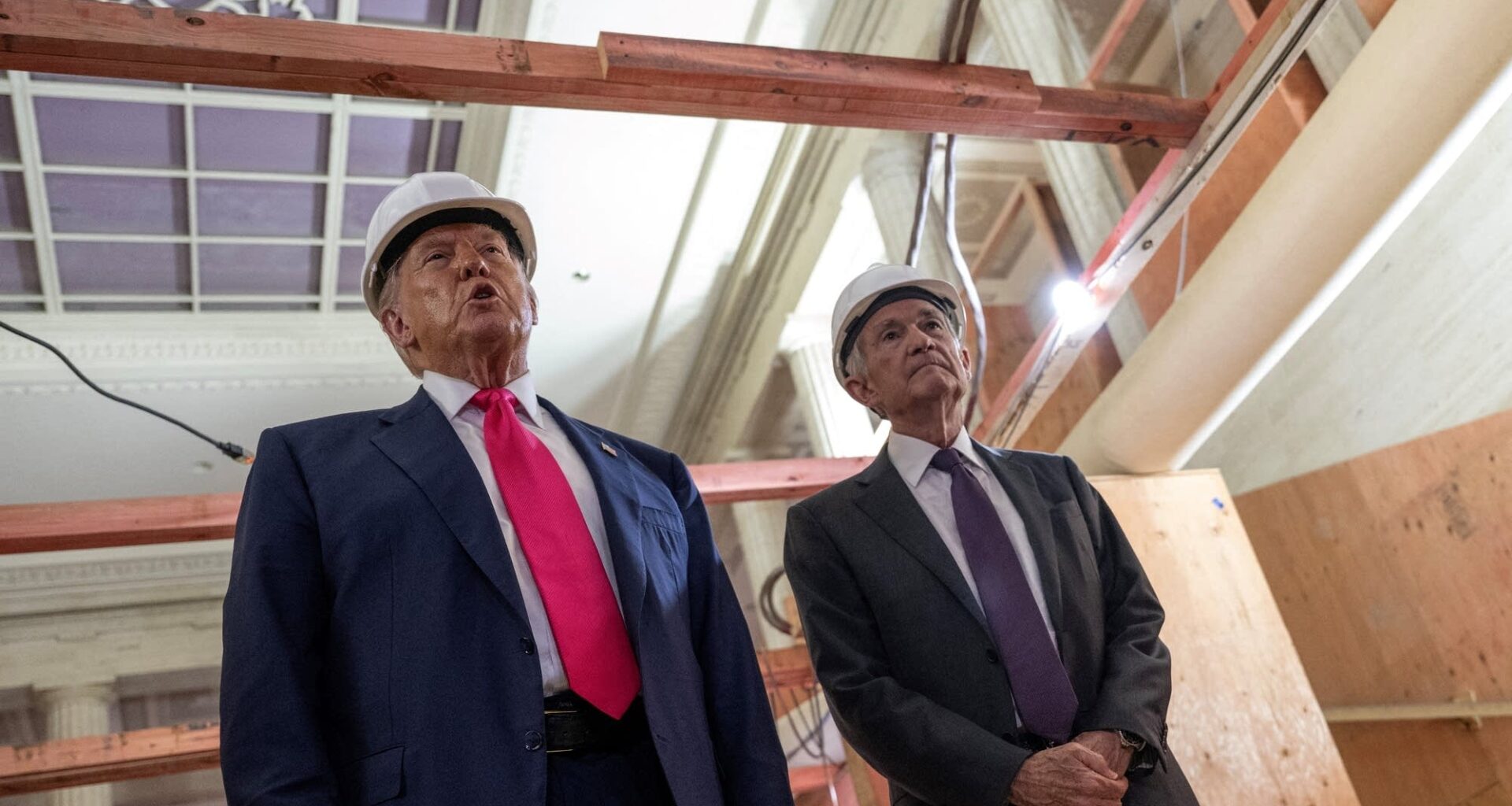The attacks on the Federal Reserve’s independence that President Donald Trump ramped up this week are driven by his desire for lower interest rates. The president has argued that the Federal Reserve should slash the federal funds rate to 1%, which is more than three percentage points lower than where it is now.
Let’s say the Federal Reserve cuts the federal funds rate to 1% tomorrow. The first place you’d see a reaction would be in government bond yields, according to George Pearkes, macro strategist at Bespoke Investment Group.
“So interest rates would drop across the entire benchmark treasury curve,” he said, meaning both short-term and long-term rates.
Pearkes said those influence all kinds of credit throughout the economy.
“One example would be auto loans,” he said. “So for a given dollar amount that you can spend on a car payment every month, you’d be able to buy a lot more car, because you have a lower interest rate that you have to pay on your borrowing.”
Business loans would also get cheaper. Companies would likely borrow more to expand and to hire people, Pearkes added.
“Taken together, you just see a range of factors that would point to a hotter economy certainly, but also significantly higher inflation than the already above-target inflation that we have right now,” he said. That’s because more demand for workers would push up wages.
More demand from consumers and businesses would push up prices. If inflation picks up again, there would be some unintended consequences.
“We would see, ironically, yields on long-term debt increase,” said Daryl Fairweather, chief economist at Redfin.
Investors would demand higher yields on longer-term debt, she said, because inflation would otherwise eat away at their returns.
And remember: Yields on longer-term bonds affect the cost of mortgages.
“Mortgage rates, they would go up, and it would actually make it more expensive for people getting long-term debt,” Fairweather said. “And that would probably hurt the housing market.”
That’s despite the fact that Trump has argued that the Federal Reserve is the one hurting the housing market by keeping rates too high.
So would that be the case? Would a lower federal funds rate make mortgages more affordable? I put that question to Daryl Fairweather.
“No. No. That is not going to accomplish that goal,” she said.
One thing a drastic rate cut would do is undermine the credibility of the Federal Reserve.
“Then that could lead to an exodus of capital,” said Anne Villamil, an economics professor at the University of Iowa.
That exodus could push interest rates on government bonds higher, too, “to compensate for the risk of the Fed losing its credibility,” she said. “And that’s what markets do — they price out risks.”
That’s why, even if the president thinks lower rates would be good for the economy, markets would think otherwise.
Related Topics
